
Electric Water Heaters Exploding Even When Not in Use: The Hidden Danger of a Common Habit
A habit that seems convenient and harmless in winter can actually carry serious risks for many households.
Electric water heaters are a familiar appliance in most Vietnamese homes, especially during the colder months. However, not everyone realizes that improper usage can turn this convenient device into a hidden danger. In December 2023, Quang Ninh Newspaper reported an explosion at a home in Hong Gai Ward, Ha Long City.
The water heater suddenly exploded even though no one was using it at the time, causing significant damage to the ceiling. Fortunately, no one was injured. The homeowner explained that the water heater in their house was almost always kept on, only turned off when someone took a shower.
This incident has raised concern because of a habit that seems harmless: leaving the water heater running all day and night for convenience. According to experts, this practice is a leading cause of premature device failure, high electricity bills, and, more importantly, fire and explosion hazards.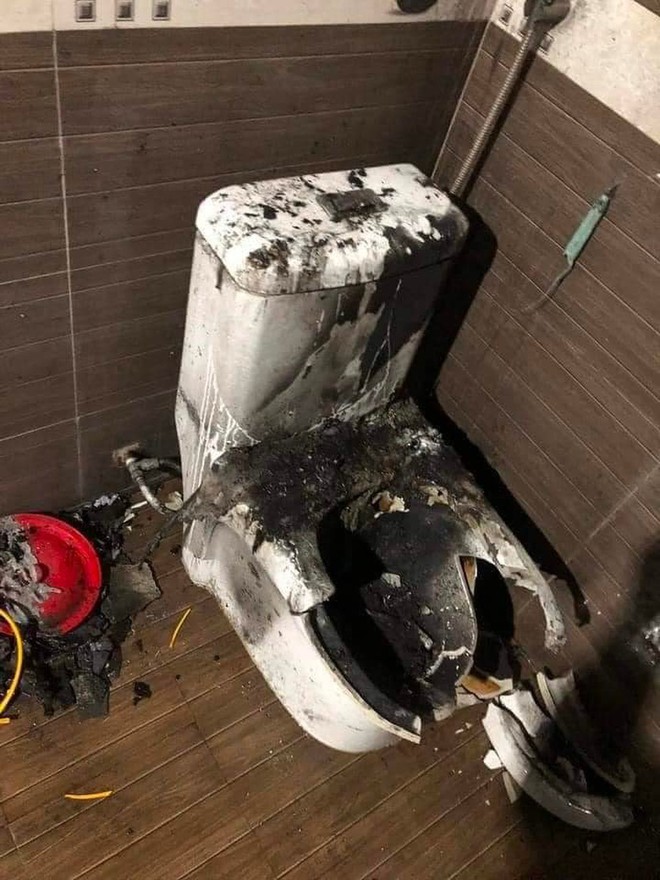
Why You Shouldn’t Keep a Water Heater On All Day
From a technical perspective, when plugged in, a water heater heats water to a preset temperature, after which a thermostat or relay automatically shuts off the heating element. However, as the water cools, the relay reactivates the heater, creating a continuous cycle of heating and shutting off—even when no one is using hot water.
Electrical engineers explain that running a water heater in this way almost 24/7 places extreme stress on its components. The heating element, temperature sensors, and insulation degrade faster than normal. If the thermostat malfunctions, overheating or sudden pressure buildup can occur, potentially causing electric leakage, cracks in the tank, or even an explosion.
This is not just a matter of equipment longevity. Constant operation can also dramatically increase electricity costs. Consumer experiments show that a 2,431W water heater running continuously for two days can consume up to 13.76 kWh. Over a month, this could cost more than 500,000 VND—roughly equivalent to running an air conditioner for several hours every day.
According to the Vietnam Electricity Group (EVN), water heaters are the second largest household electricity consumer, only behind air conditioners. The U.S. Department of Energy similarly notes that water heating accounts for an average of 18% of total household electricity consumption—higher than refrigerators or washing machines.
A 2024 study by Liu et al., published in Energy Informatics, found that more than 50% of users still rely on “continuous heating” modes for their water heaters, leading to significant energy waste and shortening the lifespan of their devices. By simply adjusting the heating schedule and lowering the set temperature, households can save 20–30% of electricity each month without affecting daily comfort.
How Experts Recommend Using a Water Heater Safely
Guidelines from SF Gate (USA) suggest turning the water heater on for no more than 3 hours per day, ideally 15–30 minutes before showering and turning it off immediately after use. Similarly, EasyFlow (UK) recommends setting a timer to turn on the heater about one hour before peak hot water usage in the morning or evening.
Ritchie et al. (MDPI, 2021) also noted that “always-on” operation significantly increases energy consumption without providing meaningful benefits. Reducing heating time and improving insulation can lower energy use by 10–20%.
For families of 2–4 people, experts recommend turning on the heater for only 1–2 hours per day, divided between morning and evening. During cold months, 30–60 minutes before showering is sufficient, while in warmer months, just 15–20 minutes is usually enough.
Pay Attention to Early Warning Signs
Most electrical engineers note that leaks or explosions rarely happen without warning. Users can detect problems early through these signs:
-
Unusual noises or humming, indicating scale buildup on the heating element.
-
Weak hot water or prolonged heating time, which may indicate a malfunctioning thermostat or sensor.
-
Water leaks around the tank or at the base, especially after long periods without maintenance.
-
A faint burnt smell around the power plug or wiring, warning of potential short circuits.
According to MyUtility (USA), “An overheating electric water heater could lead to the unit leaking or breaking down.” Users noticing any of these signs should immediately turn off the power and contact a professional technician—never attempt to disassemble the device themselves.
Maintenance Is Key
Regular maintenance is essential for safety. Experts recommend cleaning and servicing the water heater at least once a year—or every six months in areas with hard water. Maintenance includes cleaning the heating element, checking the safety valve, wiring, and insulation—components often overlooked but critical for safe operation.
Statistics show that water heaters over five years old that have never been maintained are much more likely to experience electric leakage or explosions. Some manufacturers even recommend replacing units after 7–10 years, especially if rust or metallic odors appear in the hot water.
Conclusion
The Ha Long explosion at the end of 2023 illustrates that danger can arise from everyday habits. Leaving a water heater “on for convenience” not only wastes electricity but can overload the device and create serious fire and explosion risks.
Experts agree that small changes—turning off the heater after use, performing regular maintenance, and paying attention to warning signs—can ensure family safety. Often, it is precisely the habit of “leaving the water heater on to save time” that exposes households to unpredictable hazards.
Even a seemingly minor convenience can have major consequences when it comes to electrical safety. A few careful habits can make the difference between comfort and catastrophe.
News in the same category


10 tips for dealing with people who think they are better than you
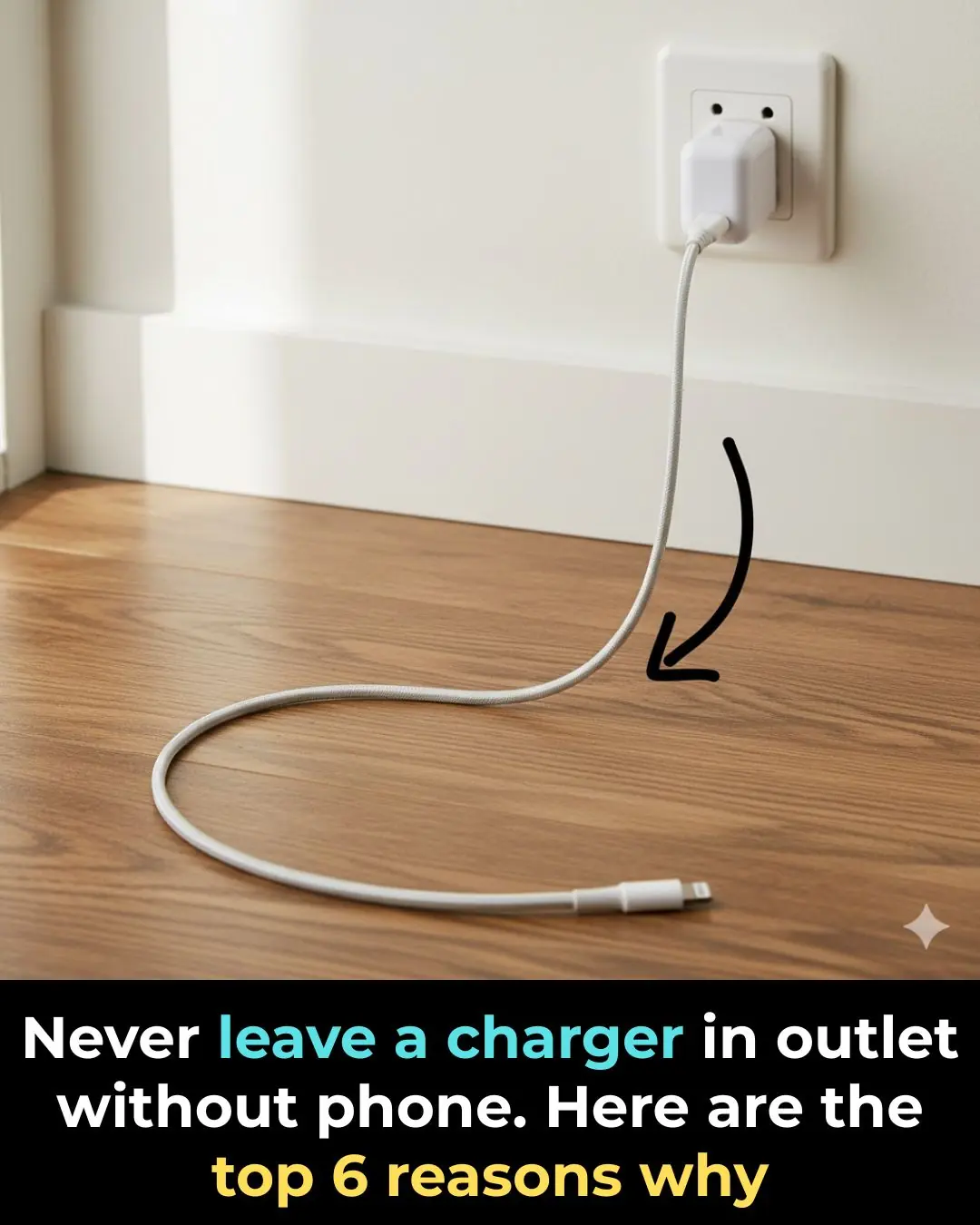
Never leave a charger in outlet without phone. Here are the top 6 reasons why

The Everyday Waste You Should Stop Throwing Away — Eggshells Have Amazing Hidden Uses

8 Wrong Things Women Do Without Knowing That They Are Pushing Their Man Away To Another Woman

Is Swollen or Bloated Food Packaging Safe to Eat

Without the need for a refrigerator, ancient people used these 6 ways to preserve eggs for a whole month and still be fresh and delicious
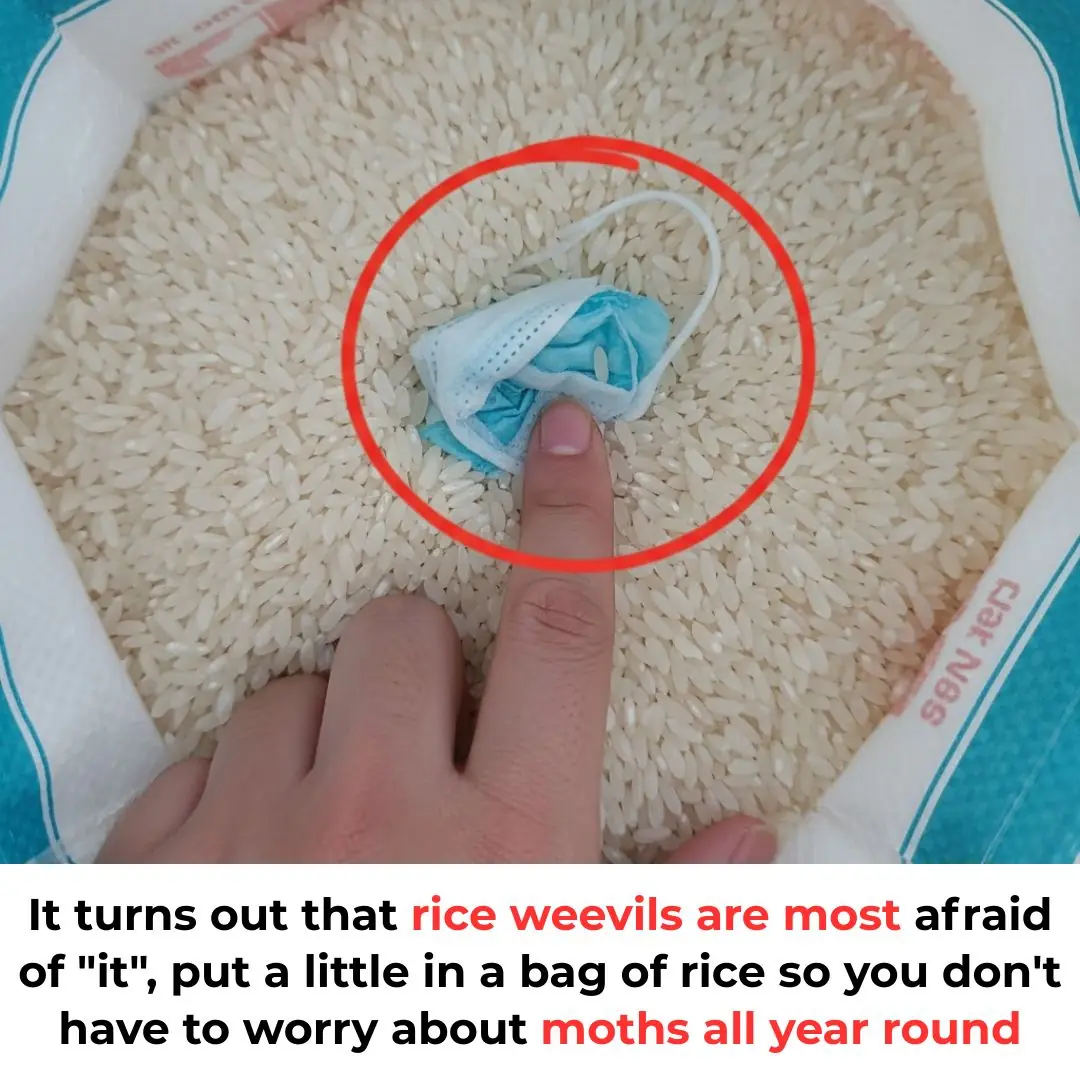
Put some in a bag of rice

4 tips to clean yellow sweat stains on white shirts

How to Clean a Dirty Rice Cooker: Don’t Use Plain Water – This Simple Solution Gets It Sparkling in 5 Minutes

Homegrown tomatoes ripening naturally and you can’t eat them all? Try these 5 ways to preserve tomatoes year-round without spending a dime.
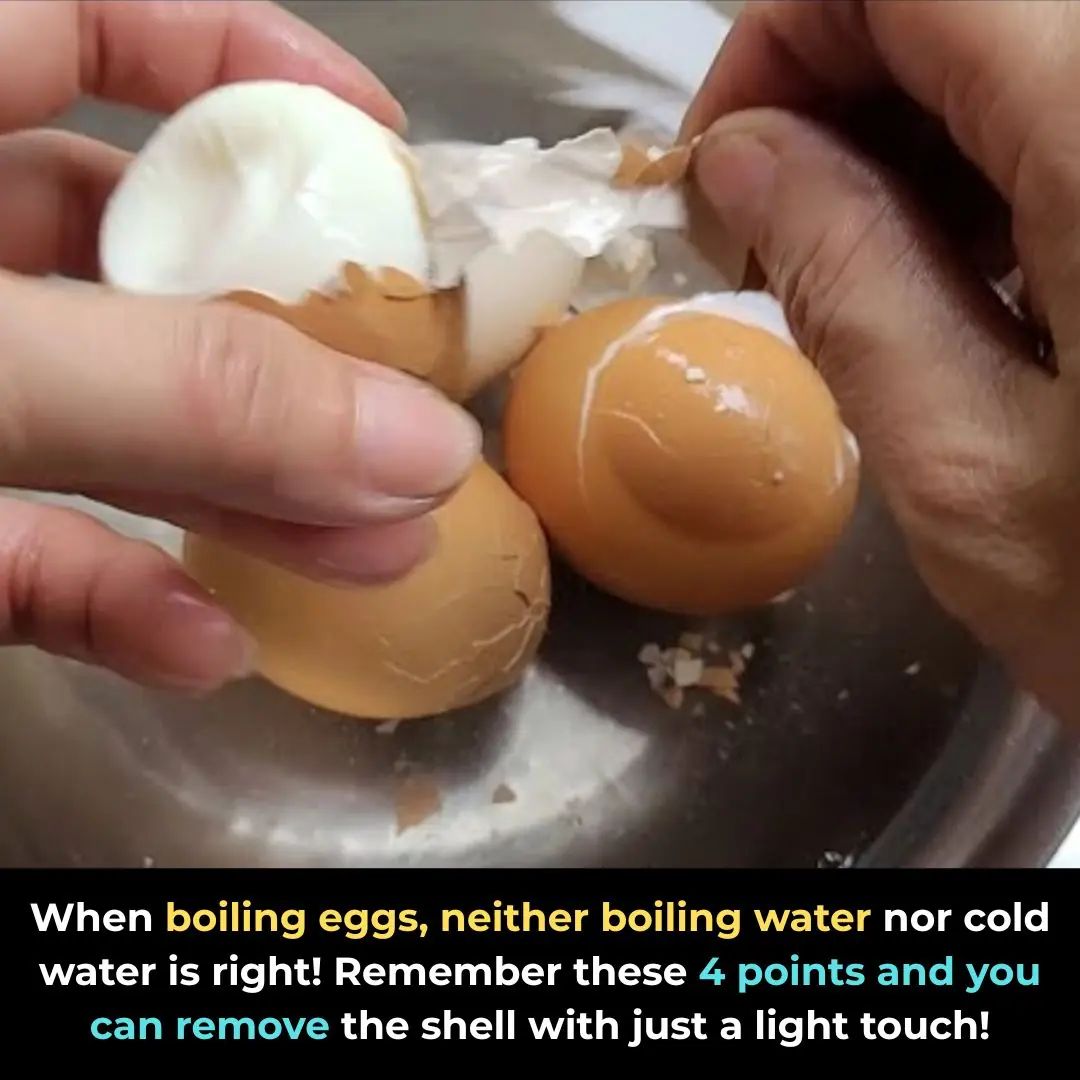
How to Boil Eggs Perfectly: 4 Key Tips for Soft, Delicious, and Easy-to-Peel Eggs

Tips for salting crispy white eggplant

10 Brilliant Ways to Reuse Plastic Food Containers and Reduce Waste

The Surprising Benefits of Sticking a Band-Aid on Your Door — Every Home Should Try This

Lemon Seeds Could Save a Snakebite Victim in Just One Minute — If Used the Right Way

Burning Garlic in the House: The Surprisingly Powerful Tradition Every Family Should Try
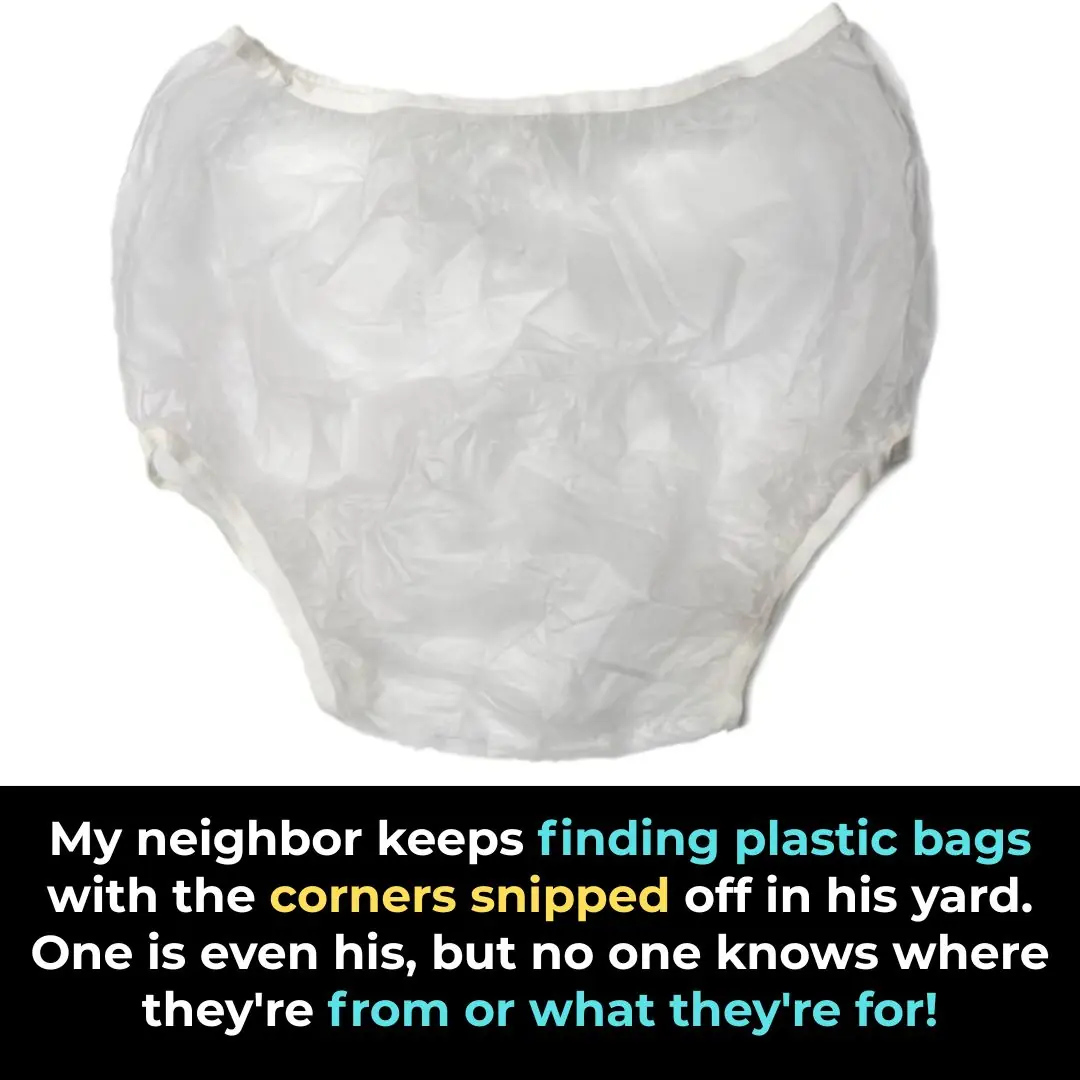
I was clueless about this

The Reason You Should Always Place a Coin in Your Freezer
News Post

Doctors prescribe LEVOTHYROXINE—but here’s what they don’t tell you

‘Broke My Heart!’: Arkansas Woman Drove Hours to Confront Pastor She Was Having an Affair with, Then Shot Him Dead in Front of His Wife

The #1 vitamin that can eliminate varicose veins—see how it fixes venous insufficiency!

7 nutrients that actually repair nerves

‘Had Security Called on Me 13 Times’: White Fans Tried to Get Black Woman Removed from Floor Seats at Jonas Brothers Concert Then It Backfired

Placing Garlic by Your Bed: 10 “Golden” Benefits You’ll Want to Try

What Clearing the Table Says About You

‘Do You Have That Same Smoke? I’m Sick Of It’: Stephen A. Smith Believes His Rebuttal To Michelle Beadle and Cari Champion Is Giving Them The ‘Attention’ They Seek

5 Early Cancer Symptoms You Must Not Overlook

Discover the Miraculous Benefits of Moringa

The Forbidden 6-Ingredient Nightcap That Melts Belly Fat While You Sleep and Rewires Immunity Before Breakfast

The Healing Power of Mimosa Pudica: 10 Health Benefits and How to Use This Amazing Plant

Super good vegetable for the liver, the elderly and middle-aged people must eat

Angus T. Jones, Who Played Jake Harper, Left The Show “Two And A Half Men” 9 Years Ago – This Is Him Today

Don’t ignore this heart test—it might save your life!

10 tips for dealing with people who think they are better than you

The Forbidden Elixir Big Pharma Hopes You Never Discover: Master Tonic – One Daily Shot to Bulletproof Your Immunity and Ignite Lifelong Vitality!

Off The RecordNadya Suleman, A Mom Of Octuplets Celebrates Their 15th Birthday
